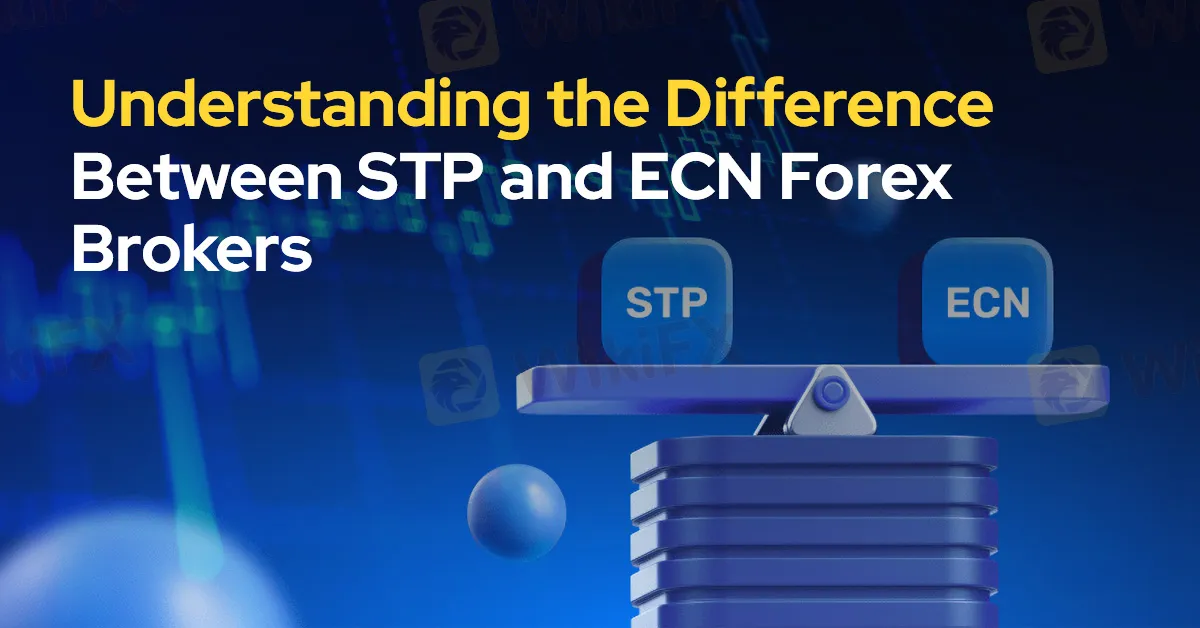简体中文
繁體中文
English
Pусский
日本語
ภาษาไทย
Tiếng Việt
Bahasa Indonesia
Español
हिन्दी
Filippiiniläinen
Français
Deutsch
Português
Türkçe
한국어
العربية
Understanding the Difference Between STP and ECN Forex Brokers
Abstract: Forex trading stands out as one of the most lucrative financial ventures available today. Traders have a range of broker options to choose from, each offering unique features and advantages. In this article, we'll delve into the key differences between STP (Straight Through Processing) and ECN (Electronic Communications Network) forex brokers. By highlighting these distinctions, we aim to help traders make informed decisions about which type of broker suits their needs best.

Forex trading stands out as one of the most lucrative financial ventures available today. Traders have a range of broker options to choose from, each offering unique features and advantages. In this article, we'll delve into the key differences between STP (Straight Through Processing) and ECN (Electronic Communications Network) forex brokers. By highlighting these distinctions, we aim to help traders make informed decisions about which type of broker suits their needs best.
What is an STP Forex Broker?
STP, or Straight Through Processing, refers to a technology that allows brokers to route trades directly to the market without manual intervention. STP brokers operate under a No-Dealing Desk (NDD) model, meaning they do not act as intermediaries between the trader and the market. This results in greater accuracy in quote execution and faster trade processing. STP brokers offer transparency and typically earn money through a markup on the spreads or commissions rather than through market manipulation.
Example of an STP Forex Broker: FP Markets
FP Markets is a well-regulated and reputable STP broker known for its wide range of trading instruments, including forex, stocks, commodities, and cryptocurrencies. It offers multiple account types, such as demo, Islamic, and standard accounts, and supports various trading platforms like MT4, MT5, and iRESS. FP Markets also provides 24/7 customer support and extensive educational resources, though traders should be aware of potential non-trading fees and limited leverage for some instruments.

What is an ECN Forex Broker?
ECN stands for Electronic Communications Network. ECN brokers operate by routing trades directly to a network of liquidity providers, such as banks and financial institutions, without dealer intervention. This system ensures that the broker does not know the trader's identity or the specific stop orders placed. ECN brokers aggregate buy and sell orders from multiple sources, facilitating a highly competitive environment for executing trades. This typically results in faster execution speeds and narrower spreads.
Example of an ECN Forex Broker: IC Markets
IC Markets is a leading global ECN forex broker that caters to various trading strategies, including scalping and day trading. The broker offers three main types of accounts: Raw Spread Accounts (cTrader), Raw Spread Accounts, and Standard Accounts. The minimum deposit required for these accounts is €200. IC Markets is known for its low spreads and high execution speeds, making it a popular choice among active traders.

STP vs. ECN: Key Differences
While both STP and ECN brokers offer direct market access through no-dealing-desk models, there are notable differences between them:
Order Routing: STP brokers route trades directly to the market, whereas ECN brokers connect traders to a pool of liquidity providers.
Liquidity: ECN brokers typically provide access to a broader range of liquidity sources, which can result in tighter spreads and more competitive pricing.
Minimum Lot Size: ECN brokers often offer smaller minimum lot sizes (e.g., 0.1 or 10,000 units of the base currency) compared to STP brokers.
Execution Speed: ECN accounts generally offer faster execution speeds due to the competitive nature of the liquidity pool.
Conclusion
Both STP and ECN brokers have their advantages and are suited to different types of traders. STP brokers offer direct market access with transparent pricing, while ECN brokers provide a highly competitive environment with potentially lower spreads and faster execution. Understanding these differences can help traders choose the broker that best fits their trading style and goals.

Disclaimer:
The views in this article only represent the author's personal views, and do not constitute investment advice on this platform. This platform does not guarantee the accuracy, completeness and timeliness of the information in the article, and will not be liable for any loss caused by the use of or reliance on the information in the article.
Read more

ACY Securities Integrates MetaTrader 5 to Enhnace Copy Trading Service
ACY Securities brings a better copy trading experience with Tradingcup and MetaTrader 5, making it easier to follow expert signals and grow your trades.

Risk Management: Turning Potential Into Profit
In Forex Trading, Without Effective Risk Management, You Risk Huge Losses and the Complete Depletion of Your Account.

WikiFX Review: Can EBC make your money safe?
EBC is a UK-registered firm. In today’s article, WikiFX has comprehensively reviewed this broker to help you better understand the truth.

Exnova Scam Alert: Account Blocked, Funds Stolen, and Zero Accountability
Exnova Forex scam exposed! Victim report blocked account and stolen funds from this unregulated broker. Learn how they operate and why you should stay far away.
WikiFX Broker
Latest News
SQUARED FINANCIAL: Your Friend or Foe?
Big News! UK 30-Year Bond Yields Soar to 25-Year High!
ACY Securities Integrates MetaTrader 5 to Enhnace Copy Trading Service
Soegee Futures Review: Should You Trust This Broker?
Malaysian Pilot Loses RM1.36 Million in UVKXE Investment App Scam
Indonesia officially joins the BRICS countries
Attention! Goldman Sachs Cuts Gold Target to $2910
Inflation Rebounds: ECB's Big Rate Cut Now Unlikely
Carney \considering\ entering race to replace Canada\s Trudeau
High-Potential Investments: Top 10 Stocks to Watch in 2025
Currency Calculator







